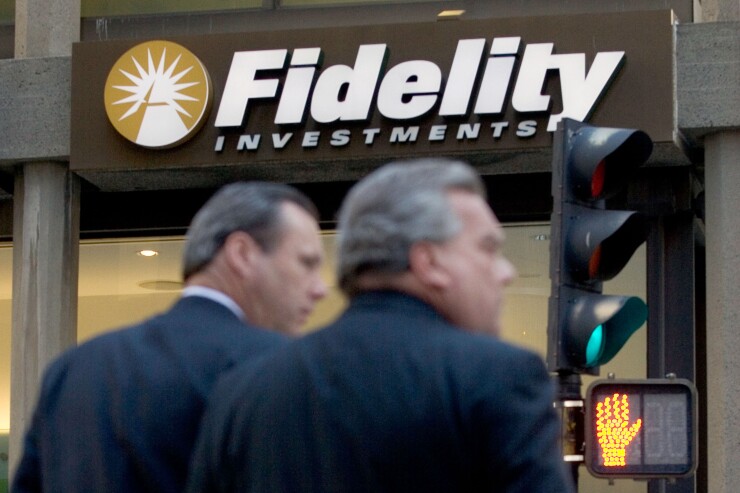The biggest brokerages continue to cut online trading fees in a bruising competition for clients.
Fidelity Investments is lowering online commissions for trading in U.S. stock and ETFs by nearly 40% for individual investors, dropping to $4.95 a trade from $7.95. The nation's largest online retail brokerage firm, with 17.9 million accounts and $1.7 trillion in client assets as of Dec. 31, is also cutting options pricing, to 65 cents from 75 cents a contract, and lowering margin rates for investors.
The new commission pricing is 50% lower than standard commission trades at E*Trade and Ameritrade and 28% lower than at Charles Schwab, said Ram Subramaniam, president of Fidelity's retail brokerage business.
"For us, this is a real commitment to being the undisputed value leader," he said.
Investors that trade on margin, with money borrowed from the broker, get some decent rate cuts on their balances. The new rates span five tiers of assets, instead of six, and start at 8.325% for a balance of up to $24,999.
Under the eliminated tier, you were charged 8.825% for balances up to $9,999. The rate on balances from $50,000 to $99,999 fell, from 7.235% to 6.875%, and on balances from $100,000 to $499,999, from 6.825% to 6.575%.

A ‘SILLY’ RACE
The fee war over retail investment products is raging as the big brokerage firms vie for market share. Sometimes the arms race over basis points and half basis points can get "silly," said Dan Wiener, editor of The Independent Adviser for Vanguard Investors.
On Friday, for example, Fidelity ran ads in major newspapers comparing expense ratios on some of its ETFs and index funds with similar products at Vanguard. One ad showed a 0.045% expense ratio on a Fidelity S&P 500 Index fund next to the 0.05% charge for a similar Vanguard fund.
Recent advances may mean that category is, actually, overvalued.
Fidelity soon found it had lost those bragging rights. New fund reports from Vanguard showed a 0.04% expense ratio for its S&P 500 fund, Wiener wrote in an e-mail to clients. "One basis point on a $10,000 investment adds up to a whopping $1," Wiener observed.
Also on Friday, Vanguard lowered expense ratios for 68 ETFs and mutual funds. That was the third set of cuts by the company since December. State Street and BlackRock had lowered their ETF fees earlier in the year.
Fidelity hopes young investors, among others, will be attracted to its lower fees. "Millennials are starting to come into the market, and they represent a huge customer segment for the future," Subramaniam said. Last year, the company launched Fidelity Go, a robo adviser catering to "digital first" investors.
Millennials are living in a world in which the damage that high fees can do to a retirement portfolio is widely discussed. A Department of Labor rule requiring firms that handle retirement accounts to act as fiduciaries was to go into effect on April 10. The Trump administration has ordered the DoL to reconsider the rule. Its fate is now uncertain.






